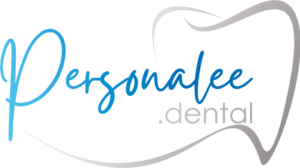Do you often find yourself battling with jaw pain or relentless headaches, a TMJ specialist will be able to help. You’re definitely not in this alone. Many of us have walked down that uncomfortable path only to discover these nuisances can frequently point to TMJ disorders—a condition impacting over 10 million folks across the country.
This article is your roadmap through the twists and turns of understanding TMJ disorders, navigating their diagnosis, exploring treatment avenues, and picking up strategies for symptom management right at home.
Stay tuned for some much-needed relief!
Understanding TMJ Disorders
We often hear about jaw pain and clicking noises when opening or closing the mouth, signaling a TMJ disorder. These issues can greatly affect one’s quality of life, leading us to explore deeper into what causes them and how they can be treated effectively.
An Intro to TMJ Disorders
TMJ dysfunction, or temporomandibular joint dysfunction, refers to issues affecting the jaw joint and muscles controlling jaw movement. This condition can lead to pain in your jaw, clicking jaws, difficulty opening and closing your mouth, and even headaches.
Our facial expressions, eating habits, and speech heavily rely on this joint’s proper functioning. It affects our ability to chew properly and might even change how we speak or express ourselves with our faces. Addressing these symptoms early with a TMJ specialist can prevent them from worsening over time.
Issues Related to TMJ Disorders
- Jaw pain
- Frequent headaches
- Clicking or popping sound when moving your aw
- Orofacial pain
- Difficulty opening or closing your mouth
- Tight jaw
- Nerve damage symptoms
Causes
- Arthritis
- Genetic predisposition
- Teeth grinding
- Misaligned bite
- Uneven teeth
Diagnosis and Treatment
Finding the right diagnosis and treatment for TMJ disorder makes a huge difference. We guide you through each step, ensuring you understand your options. Keep reading to see how we can ease your pain and improve jaw function.
Diagnosis Methods
To identify TMJ disorders accurately, specialists use a range of diagnosis methods. They start with a thorough medical history review and physical examination of the jaw to check for pain, tenderness, and clicking sounds.
Imaging tests like X-rays, MRI (Magnetic Resonance Imaging), or CT (Computed Tomography) scans might be necessary to get detailed images of the bones involved in the joint and surrounding tissue.
Further analysis can involve using computerized bite analysis tools that measure the force exerted by each tooth. This aids in understanding how misalignment might contribute to TMJ disorder symptoms such as headaches, facial pain, difficulty opening and closing mouth, and discomfort while chewing.
Joint vibration analysis is another technique which detects abnormalities in how the joint moves when you open or close your mouth. These comprehensive evaluation strategies ensure an accurate diagnosis leading directly into effective treatment options for relief from jaw pain, clicking jaws, and other TMJ symptoms.
Treatment Options
- Exercises
- Dental splints
- Physical therapy
- Surgery
- Over-the-counter pain relievers
- Ice packs
Who treats TMJ disorders?
A variety of healthcare professionals can treat TMJ disorders, ranging from dentists to specialists in jaw disorders. Primarily, a dentist or an oral surgeon often takes the lead in diagnosing and managing TMJ symptoms.
These experts have deep knowledge about jaw pain, difficulty with jaw movement, and the complexities of facial pain associated with TMJ.
For more complicated cases or when specific treatments are necessary, patients may be referred to a TMJ specialist. These professionals specialize in treating the wide range of issues that stem from TMJ disorders including chronic headaches, clicking jaws, and bruxism-related complications.
They work closely with patients to develop personalized treatment plans aimed at alleviating discomfort and improving function in the temporomandibular joint.
Living with TMJ Disorder
In our daily lives, we often overlook simple habits that can greatly impact our well-being, especially for those struggling with TMJ disorders. Adopting certain lifestyle adjustments and home remedies can significantly ease the discomfort associated with jaw pain and facial tension.
Preparing for Appointments
Finding relief through alternative medicine often leads us to consider specialized treatment for TMJ disorders. Making an appointment with a TMJ specialist is a critical step towards addressing symptoms such as jaw pain, clicking jaws, and headaches effectively. Before heading into your appointment, you should:
- Compile all relevant medical records and create a list of the symptoms you’ve been experiencing, no matter how minor they might seem. This preparation helps the specialist understand your issues comprehensively.
- Gather any questions or concerns you might have about TMJ treatment options or lifestyle changes that could alleviate your discomfort. Doing so ensures that nothing important is overlooked during your discussion with the specialist.
- Keep track of when each symptom began and note if anything specific seems to trigger worsening conditions, like stress or certain foods. Armed with this information, we can work together with our specialist to develop a targeted approach for managing TMJ disorder effectively.
Tips for Managing TMJ Disorder
- Make sure to eat soft foods to ease the stress on our jaws. This simple change can significantly reduce jaw pain and discomfort linked with TMJ disorder.
- Practicing relaxation techniques such as deep breathing or meditation helps manage stress, which often worsens TMJ symptoms.
- Incorporate gentle jaw stretching exercises are part of your daily routine. These movements improve flexibility and function in the temporomandibular joint, lessening stiffness and pain.
- Avoid habits that strain the jaw, like chewing gum or clenching teeth, to prevent additional tightness and discomfort associated with TMJ disorders.
Begin Healing From TMJ Disorders Today!
TMJ disorders bring a host of uncomfortable symptoms, from severe jaw pain to persistent headaches. Specialists in this field offer effective treatment options tailored to relieve these symptoms.
Their expertise ensures patients regain comfortable jaw movement and find relief from facial pain. For those struggling with TMJ issues, schedule an appointment with PersonaLee Dental and begin healing today!


